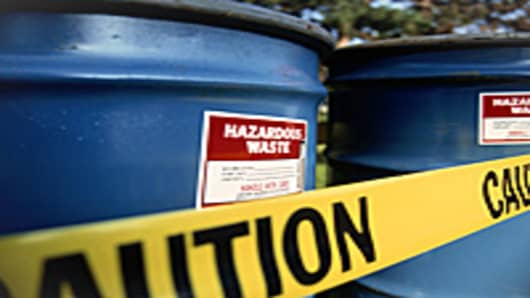Tail risk, of course, is the statistical term much in vogue in the financial press for describing unlikely events. (The 'tail' in tail risk refers to the tail-shaped edges in the bell curve of a normal distribution .)
These allegedly unlikely events are sometimes referred to as black swans, which CNBC's Jeff Cox wrote aboutlast Friday.
Cox's disturbing conclusion was that black swans are occurring with such regularity in these volatile times that they can no longer be considered true statistical outliers.
As you might imagine, applying that logic to the nuclear domain leads us to some rather dark places.
Joseph Cotterill, writing for the Financial Time's Alphaville blog , takes a look at these outlier events within the context of building nuclear waste containment vessels—and points out that a failure to find long-term storage solutions for such waste is one of the principal issues complicating the efforts to contain the ongoing nuclear disaster at Fukushima.
It's a dizzying premise to begin with, but if you want to contemplate the ultimate surreal, late-night dorm room debate I present to you the following:
"So the repository builders have to take into account a tail risk of future humans disturbing the site and not realising the danger facing themselves and their ecology, right? Fukushima-level events, drawn over a period of 100,000 years. People might regress towards a pre-industrial state or lose language over a timescale like that. So you have to design a marker that scares people away, but doesn't flip them over into morbid curiosity towards exploring further and, potentially, dooming an entire civilisation with radioactive poisoning (for all we know, the next Sumer or Egypt that cradles other civilisations)."
On this point, Mr. Cotterill puts me at a rather uncharacteristic loss for words.
While I can't entirely wrap my head around so cosmic a notion, it does make me wonder about the following: Is it really a wise idea for our species—whose intellectual shortcomings include an inability to understand the valuation of asset backed securities—to create anything so toxic that it must be avoided for 5,000 generations?
___________________________________
Questions? Comments? Email us atNetNet@cnbc.com
Follow NetNet on Twitter @ twitter.com/CNBCnetnet
Facebook us @ www.facebook.com/NetNetCNBC


